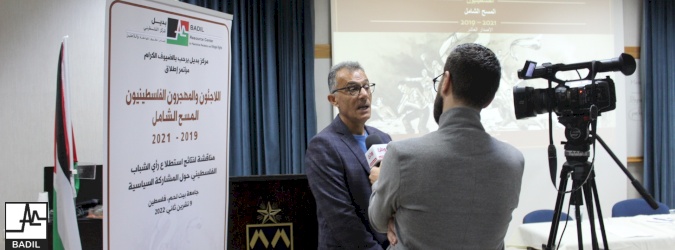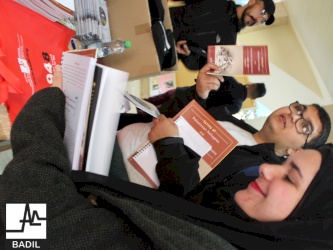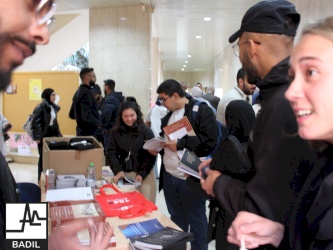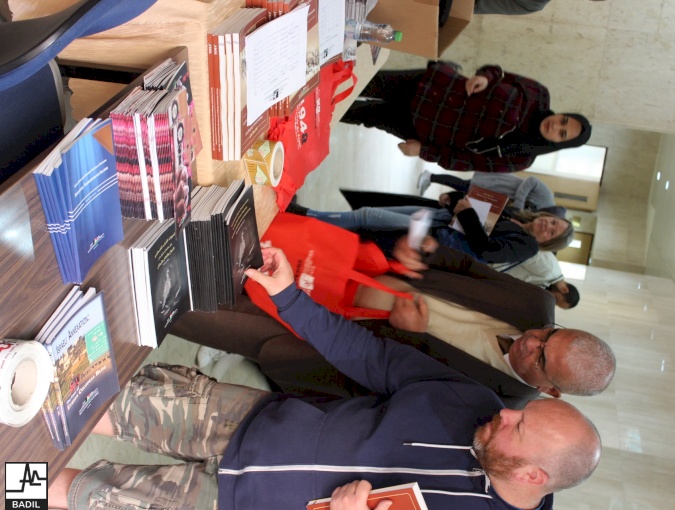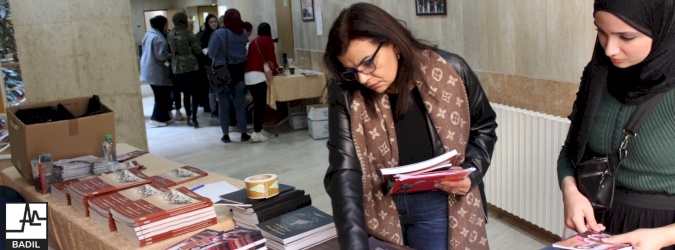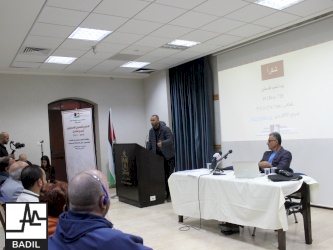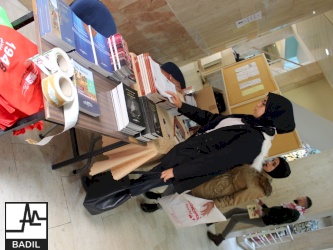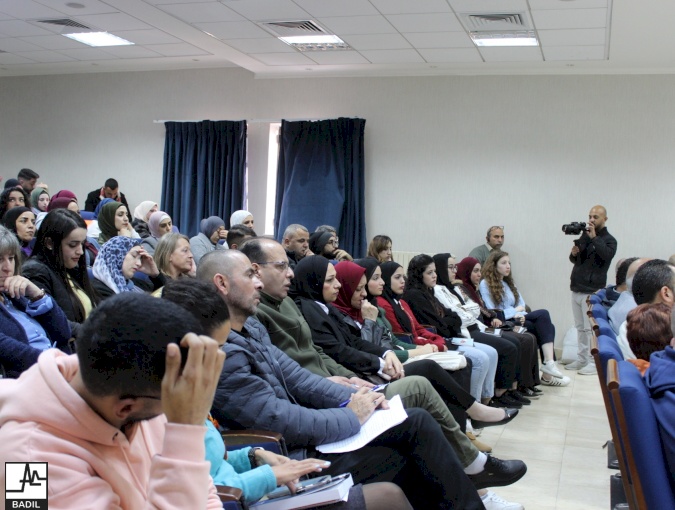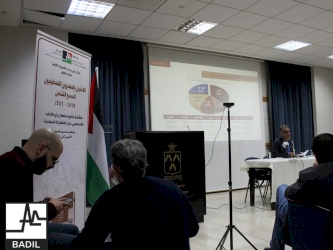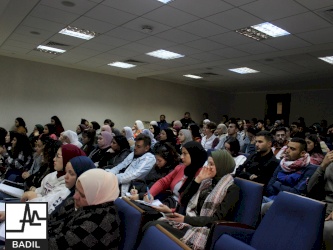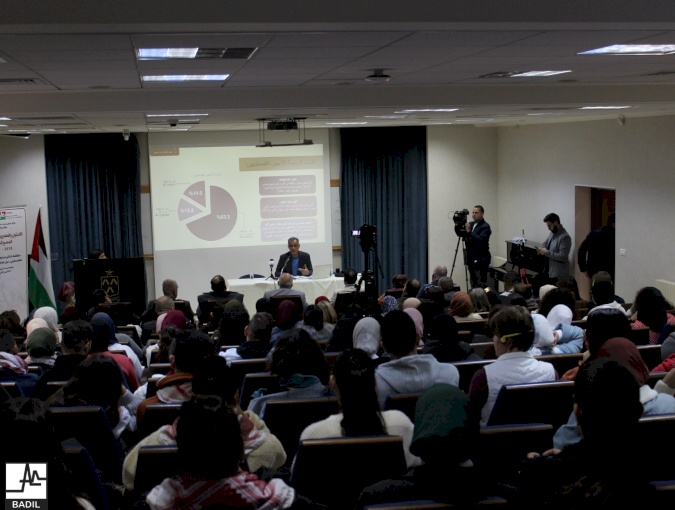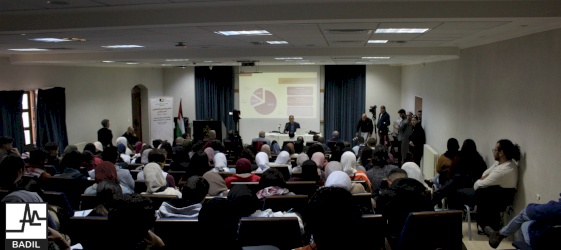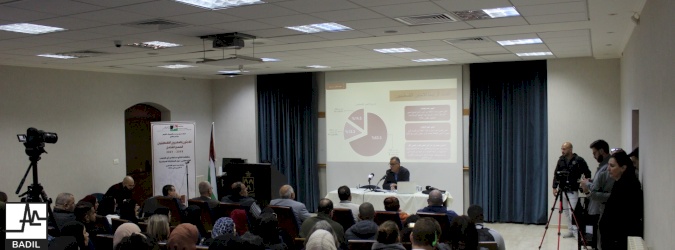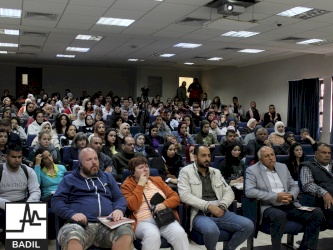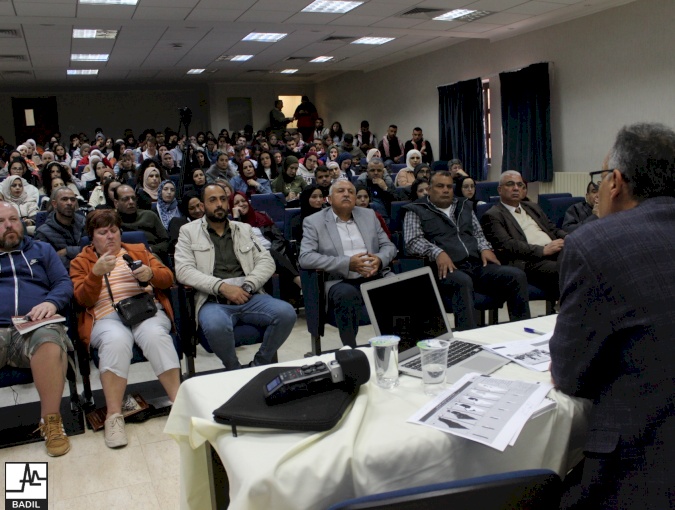Press Releases

 BADIL Resource Center held a press conference on 9 November 2022 at Bethlehem University to launch the 10th Edition of the Survey of Palestinian Refugees and Internally Displaced Persons (IDPs) 2019-2021. This iteration of BADIL’s biannual survey included comprehensive analysis of Palestinian youth views on political participation. The event was attended by university students, members of the University Student Council, representatives of civil society and international institutions, and activists.
BADIL Resource Center held a press conference on 9 November 2022 at Bethlehem University to launch the 10th Edition of the Survey of Palestinian Refugees and Internally Displaced Persons (IDPs) 2019-2021. This iteration of BADIL’s biannual survey included comprehensive analysis of Palestinian youth views on political participation. The event was attended by university students, members of the University Student Council, representatives of civil society and international institutions, and activists.
The survey sheds light on gaps in international protection frameworks that the Palestinian people -- especially refugees and internally displaced persons – still suffer from and the ongoing forcible displacement policies that target Palestinians in Mandatory Palestine and Palestinians in exile, many of whom have also endured multiple displacements.
BADIL’s survey is more comprehensive than UNRWA's statistics because it includes unregistered Palestinian refugees, Palestinian refugees outside UNRWA’s five areas of operation and internally displaced Palestinians in its statistics and analysis. The 2019-2021 Survey indicated that an estimated 9.17 million of the 14 million Palestinians worldwide (65.5 percent) are forcibly displaced persons as of the end of 2021. Among them are approximately 8.36 million Palestinian refugees and 812,000 IDPs, forming the largest and most protracted population of externally displaced refugees.
In Chapter Five of the Survey, BADIL addressed the question of the political participation of Palestinian youth (18-29 years old). The chapter delves into the main findings of the questionnaire, comprised of six focused, closed-ended questions answered by 1000 refugee and IDP youth in 5 locations (West Bank, Gaza Strip, Lebanon, Jordan and Palestine 1948).
The results of the questionnaire showed that 95.1 percent of the youth surveyed have engaged in frameworks, bodies, and mechanisms for political participation. Other prominent results included: low participation rates in official and semi-official fields, low participation rates in areas that require collective participation, and a shared belief in the futility of participation in general elections in various regions. Further, data from the questionnaire also demonstrated that the youth’s reluctance to engage in political participation largely stemmed from the Palestinian division, the absence of a national strategy for liberation, and the geographical dispersion of the Palestinian people.
The Survey of Palestinian Refugees and IDPs 2019-2021 is now available in English on BADIL’s website and will be released in Arabic soon. This publication, with its comprehensive and updated information on Palestinian refugees and IDPs and their rights, is a rich resource for politicians, researchers, experts, and human rights activists.

